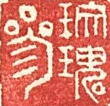Throughout history, salt has been associated with life, preservation and prosperity. Salt has been an integral part of countless historic civilizations, at some points even serving as currency. In fact, the word “salary” is derived from the word “salt”. But salt has experienced a dramatic fall from grace over the last century. In recent history, salt has become “the enemy”, often considered one of the big dietary culprits for those suffering with high blood pressure and heart disease. People commonly blame salt for bloating and swelling of joints. But perhaps it’s time to take another look at the roots of some of these ailments.
Salt is essential to human health. It alkalizes blood, helps our bodies retain the fluids we need and aids in metabolic regulation. Salt in its natural form is rich in minerals and trace elements. It contains magnesium, which is essential to healthy immune function, aids in the metabolism of sugars and fats, is required for the proper function of nerve cells and has been shown to dramatically lower mortality rates in heart-attack patients. Our bodies need magnesium to maintain acid-alkaline balance in cellular fluids.
Unfortunately, the white crystals you find in on most tables have been stripped of magnesium and virtually every other nutrient. The refining process reduces commercial table salt to 98 percent sodium chloride versus 82 percent in Celtic sea salt. Furthermore, the magnesium content in Celtic sea salt and other unrefined salts help to naturally drain excess sodium from the body, thereby preventing some of the ailments associated with table salt.
The other issue we need to look at more closely when it comes to salt is the simple principle of moderation. Anything we ingest to excess can lead to health repercussions and salt is no exception. One to three grams daily meets our human nutritional requirement. Most Americans, however, consume between 12-15 grams daily. And for the most part, we’re consuming the industrially refined, mineral-deficient variety that is now loaded into pre-packaged and processed foods along with a variety of the 6,000 other synthetic chemicals that are now officially condoned for use in the processed-food industry.
The best way to avoid excess sodium is to avoid processed foods. Replace them with foods that you can recognize as actual food (ask yourself if your grandparent would recognize it), and use a good quality sea salt in moderation.
summarized from The Complete Book of Chinese Health and Healing, Guarding the Three Treasures, by Daniel Reid





No comments:
Post a Comment